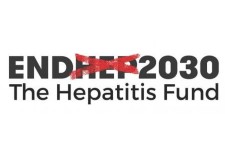The Hepatitis Fund - EndHep2030

The catalytic funding of The Hepatitis Fund speeds the elimination of viral hepatitis by supporting the development of sustainable strategic plans at the national and sub-national level to guide effective program implementation; by showing how countries can optimize their human and financial resources within health budgets; by increasing the availability of country-specific data that inform where and how to intervene most efficiently and effectively; and, by building health system capacity to deliver quality hepatitis prevention and treatment services.
Increasing awareness is a crucial first step. Most people, including many policy makers, don’t understand the severity of a world-wide epidemic that kills more than 1 million people annually and cause severe liver disease in many more – and this has happened for decades. Incredibly, only 1 in 10 people infected with viral hepatitis are aware they have it. Equally important, it’s not widely known that measures exist now to prevent and treat hepatitis.
Preventing new infections is also critical. A safe effective vaccine that offers 98% to 100% protection against hepatitis B is available and highly cost-effective, although it is not routinely administered as recommended, especially to newborns. Transmission of viral hepatitis can also be prevented through better infection control, improved blood safety practices, and safer and appropriate use of injections, including providing harm reduction services.
Identification and treatment of infected persons is essential for saving their lives from severe liver disease and for preventing transmission to others. It is a tragedy that effective and increasingly affordable testing and treatment services, including newer curative therapies for hepatitis C, are not available to all populations — and not just because of lack of awareness.
- Foundation
- Infectious disease
- Public health action
- Mainly international

